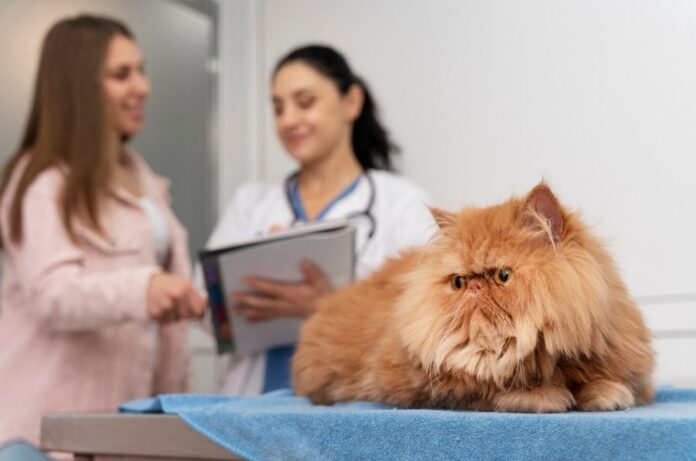Pet insurance for cats has become increasingly popular as a way for owners to protect themselves from large, unexpected veterinary costs. Getting insurance when your cat is still a kitten can be especially beneficial. This article will provide an overview of kitten insurance – what it covers, what factors to consider, average costs, and tips for choosing a plan.
What is Kitten Insurance
Securing the well-being of your adorable feline friend becomes effortless with the inclusion of the Best Kitten Insurance right from the start. Insuring your kitten as soon as you bring them home has several advantages. Kittens are curious and playful by nature, making them prone to accidents and illnesses that could result in expensive vet trips. Best Kitten Insurance protects you financially in case the unexpected happens. Plans cover everything from swallowed foreign objects to infectious diseases to injuries from falls and other mishaps.
Adding to the benefits, insuring your kitten early ensures that pre-existing conditions are not excluded from coverage. As long as you enroll your kitten before any symptoms arise, conditions that develop will be covered. This natural approach to safeguarding your feline companion can save you thousands of dollars over the lifetime of your cat.
Types of Kitten Insurance
There are a few main types of kitten insurance plans:
Accident-Only Coverage
This is the most affordable type of kitten insurance. Accident-only plans cover unexpected injuries, like broken bones from falls or wounds that need stitches. They do not cover illnesses. This plan works well for financially protecting against expensive traumatic injuries.
Comprehensive Coverage
Comprehensive plans cover both injuries and illnesses, including genetic conditions, cancer, upper respiratory infections, etc. This offers the highest level of protection. Some plans require a vet exam showing the kitten is healthy before enrollment.
Wellness Coverage
Some providers offer wellness coverage as an add-on or included with comprehensive plans. This covers routine preventative care like vaccinations, deworming, and spay/neuter procedures. It helps spread out these common kitten costs.
What Kitten Insurance Covers
Covered conditions and reimbursement amounts vary between insurance providers. But some costs typically covered include:
- Emergency vet visits for illness or injury
- Diagnostic tests like x-rays, bloodwork, and ultrasounds
- Prescription medications
- Surgeries and hospitalization
- Chronic conditions
- Alternative therapies like acupuncture
- Hereditary and congenital defects
Be sure to read the fine print to understand exclusions for pre-existing or hereditary conditions, benefit limits, deductibles, and reimbursement percentages.
Factors to Consider When Choosing Kitten Insurance
When picking kitten insurance, here are some key considerations:
Coverage Details
Look at specifics of what is and is not covered. Make sure wellness care, prescription food, dental care, etc. are included if desired.
Reimbursement Rate
Plans with higher reimbursement rates (70-90%) will pay a bigger portion of your vet bills.
Deductibles
Lower annual deductibles ($100-$500) will reduce your out-of-pocket costs for care.
Benefit Limits
Higher annual and lifetime payout limits ($10,000+) ensure your kitten is covered for more services.
Exclusions
Avoid plans that exclude coverage for common kitten issues like parasites, urinary tract infections, or genetic conditions.
Average Cost of Kitten Insurance
The monthly premium for kitten insurance typically ranges from $20-$40 per month. Actual costs depend on your location, plan type, breed, coverage limits, annual deductible, and reimbursement rate chosen. Most insurers offer quotes online so you can easily compare pricing.
On average, pet insurance for kittens saves owners 50-80% off veterinary bills over the life of their cat.
How to Shop for Kitten Insurance
Follow these steps when choosing kitten insurance:
- Decide which plan type best fits your needs and budget – accident only, illness included, wellness options.
- Research the top-rated pet insurance companies. Ask your vet for recommendations.
- Check policy details carefully to avoid surprise exclusions or limitations.
- Compare quotes online to find your best option. Most insurers provide instant quote estimates.
- Enroll as early as possible, often before 12 weeks old, to avoid pre-existing condition restrictions.
Conclusion
Insuring your new kitten can provide invaluable financial protection against unexpected veterinary costs. Comparing plans to find the right type and level of coverage will help you get quality protection. Purchasing kitten insurance locks in affordable monthly premiums and can potentially save thousands long-term by minimizing your out-of-pocket vet expenses. Giving your cat comprehensive medical care without the financial worries will help them live their best life with you!

